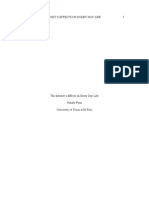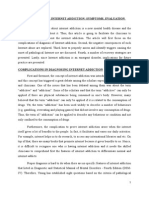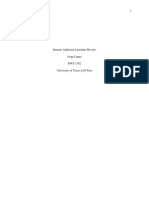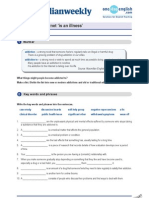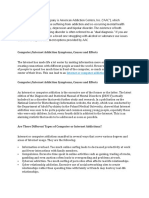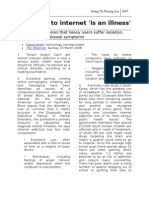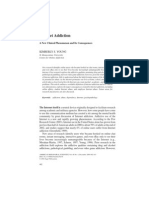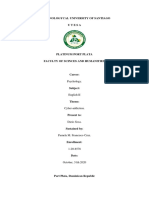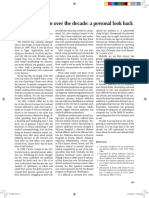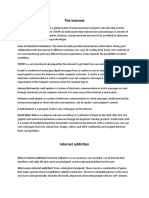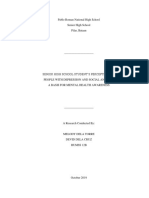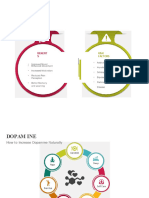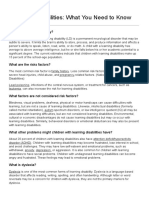0% found this document useful (0 votes)
82 views7 pagesCommunity Problem Report Final Draft
Internet addiction is a serious problem that affects over half the world's population. It can cause withdrawal symptoms similar to drug and alcohol addiction when a person is unable to access the internet. Prolonged internet use is linked to negative physical and mental health effects like depression, anxiety, lack of sleep, weight gain/loss, and social isolation. Internet addiction also impacts society by reducing social skills in youth and contributing to rising obesity rates as people spend more time online and less time being physically active. While the internet provides benefits, overdependence can be harmful and needs greater awareness and treatment.
Uploaded by
api-384835645Copyright
© © All Rights Reserved
We take content rights seriously. If you suspect this is your content, claim it here.
Available Formats
Download as DOCX, PDF, TXT or read online on Scribd
0% found this document useful (0 votes)
82 views7 pagesCommunity Problem Report Final Draft
Internet addiction is a serious problem that affects over half the world's population. It can cause withdrawal symptoms similar to drug and alcohol addiction when a person is unable to access the internet. Prolonged internet use is linked to negative physical and mental health effects like depression, anxiety, lack of sleep, weight gain/loss, and social isolation. Internet addiction also impacts society by reducing social skills in youth and contributing to rising obesity rates as people spend more time online and less time being physically active. While the internet provides benefits, overdependence can be harmful and needs greater awareness and treatment.
Uploaded by
api-384835645Copyright
© © All Rights Reserved
We take content rights seriously. If you suspect this is your content, claim it here.
Available Formats
Download as DOCX, PDF, TXT or read online on Scribd
/ 7
